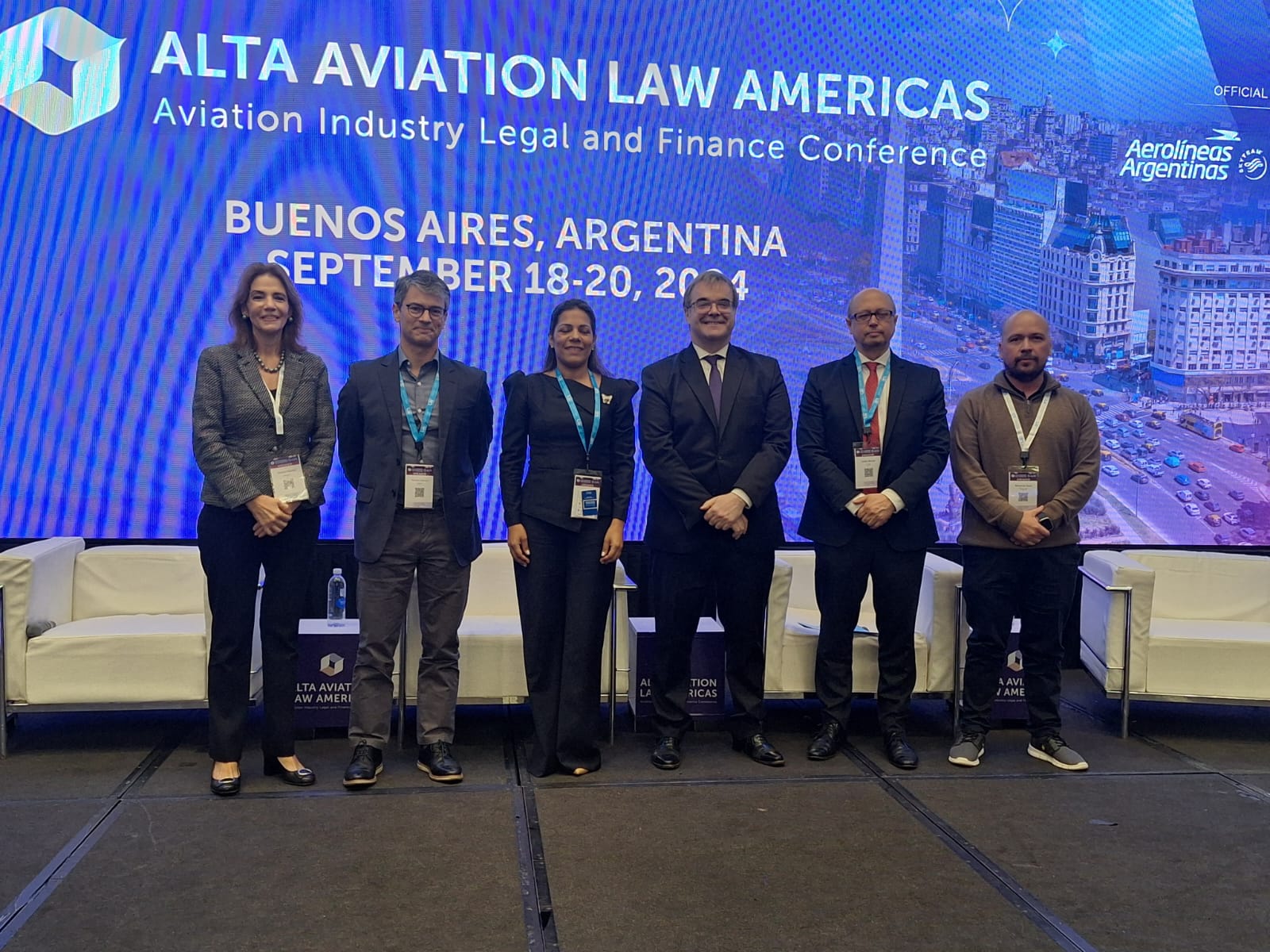ALTA Aviation Law Americas debates the future of Latin American aviation
Event in Buenos Aires gathers industry experts to discuss regulatory challenges and integration policies in Latin America
September 20, 2024

Buenos Aires, September 20, 2024 – ALTA Aviation Law Americas brings together aviation sector experts in Buenos Aires to discuss the main challenges and opportunities from a legal perspective. The event was opened by ALTA’s CEO, José Ricardo Botelho, Hernán Gómez, Argentina’s Undersecretary of Air Transport, and Julia Cordero, ANAC Argentina’s Administrator.
"Argentina, like the whole of Latin America and the Caribbean, has enormous growth potential, and aviation is one of the engines that can drive us towards more dynamic economies, with better-connected countries and societies with more favorable conditions. This premise is not just a vision, but a tangible reality. Air transport in Argentina directly generates around 8.3 billion dollars and supports approximately 60,000 jobs. When we consider its indirect, induced, and catalytic effects, commercial aviation contributes more than 22.5 billion dollars and 536,000 jobs. Last year, Argentina was the leader in receiving international tourists in South America and the second in Latin America and the Caribbean, after Mexico. Tourism injected 58 billion dollars into the Argentine economy, representing 8.8% of the GDP, and generated 1.4 million direct and indirect jobs. However, aviation is not just about tourism; it’s about development, connectivity, and trade," Botelho emphasized in his opening remarks.
"We are developing a corrective action plan in the country to resolve regulatory issues. Despite the challenges of recent years, we are implementing effective measures to transform the regulatory framework, restore the technical level and quality necessary to keep Argentina in Category 1, and continue growing passenger numbers in the country," Cordero highlighted.
In the panel titled "Roadmap for Regional Integration in Latin America," aviation industry leaders discussed the opportunities and barriers to treating flights between Latin American countries as domestic ones.
Viviana Martin, Global Director of Institutional Relations at avianca and President of avianca Costa Rica, highlighted the importance of integrating markets and reducing regulatory barriers. Hernán Gómez spoke about the need for a political decision to reform the sector in Argentina, pointing to the implementation of open skies, which would strengthen the country's competitiveness.
The importance of promoting supranational alignment among the region's countries, through the harmonization of smart regulations, was highlighted by Ricardo Catanant, Director of ANAC Brazil.
Regarding regional integration, Paola Plá, Deputy Director General of the Dominican Institute of Civil Aviation (IDAC), indicated that they have supported the initiatives proposed by CLAC aimed at strengthening and accelerating the pace of regional air transport liberalization. When referring to the barriers to integration, she mentioned the multiplicity of bilateral air services agreements and their differences, requiring a review process of these agreements to ensure they comply with the policies to be established and guarantee the harmonization of such policies.
In the same vein, Mauricio Sana, CEO of Flybondi, highlighted the company’s efforts to facilitate traffic between Argentina and Brazil. According to him, it is essential to accelerate regulatory reforms and remove some economic, operational, and labor obstacles. Jaime Binder, Secretary of the Latin American Civil Aviation Commission (CLAC), emphasized the importance of regulation focused on regional integration. “When taking an overview of the sector, we realize that an open skies policy is closer than ever in the region,” Binder explained.
The need for greater collaboration between governments, regulatory authorities, and the private sector to facilitate regional integration was a consensus during the debate. It was concluded that the harmonization of regulatory policies will increase the competitiveness of countries for the development of an essential sector, offering more options and benefits to passengers and driving economic growth.
























